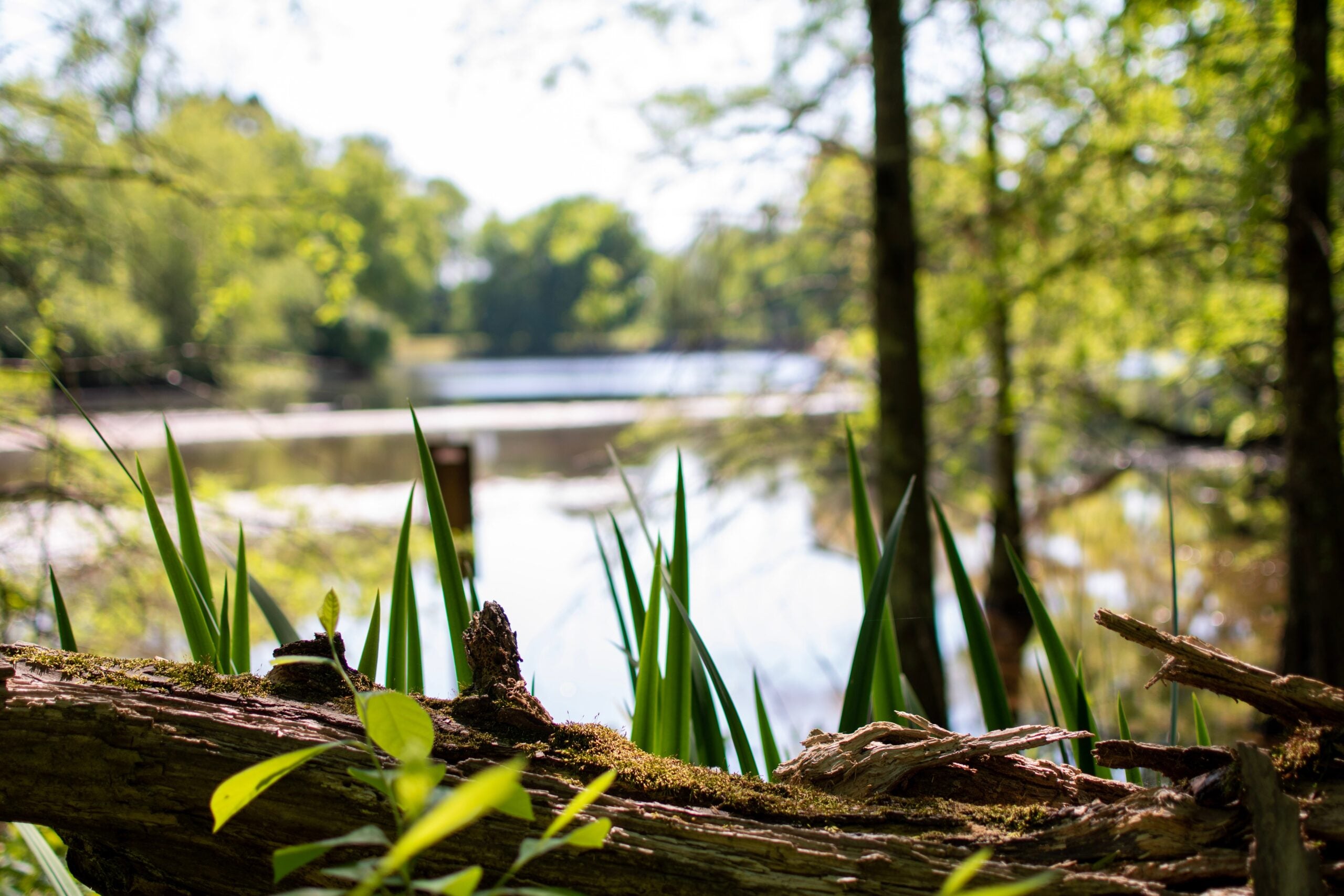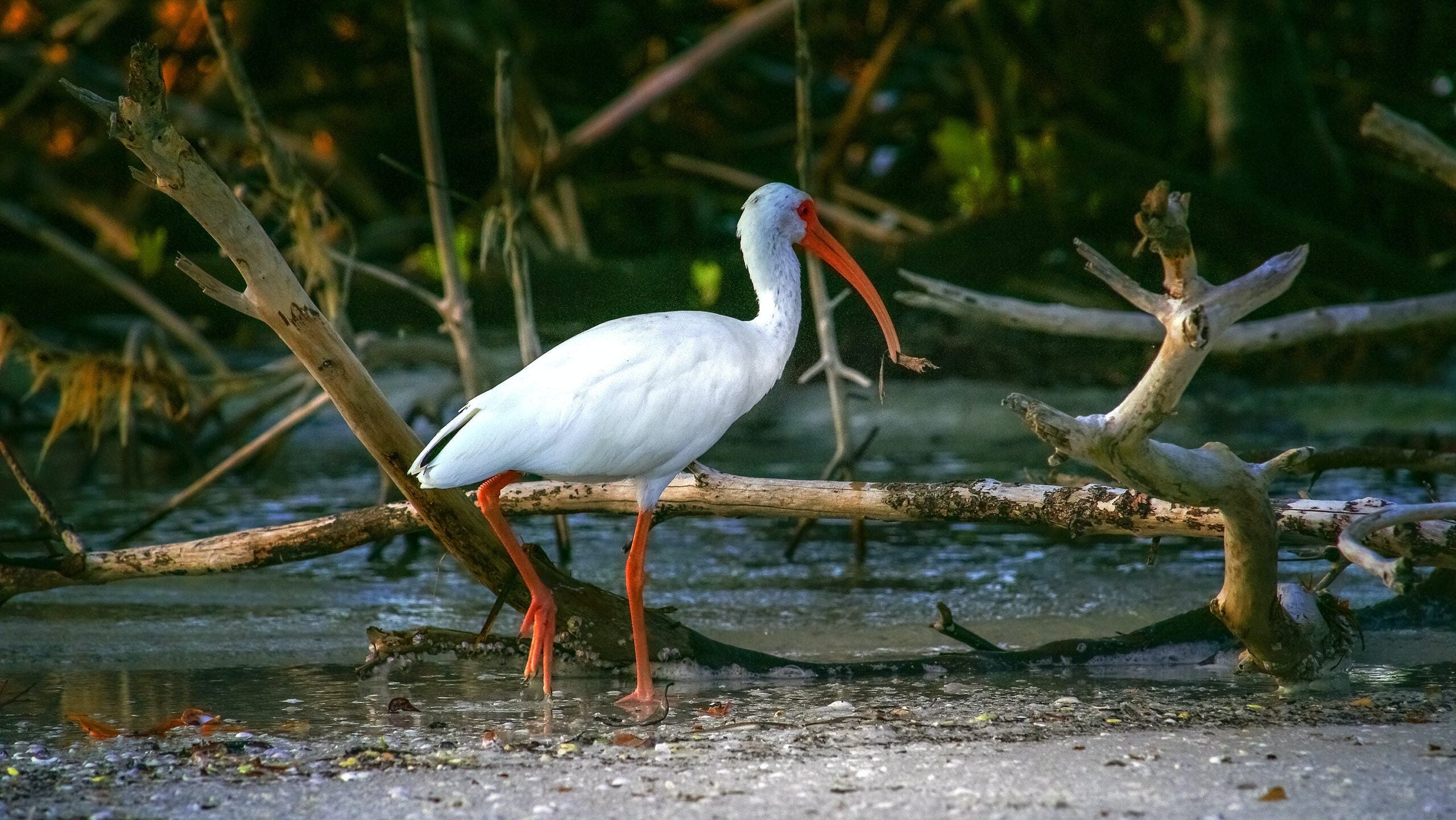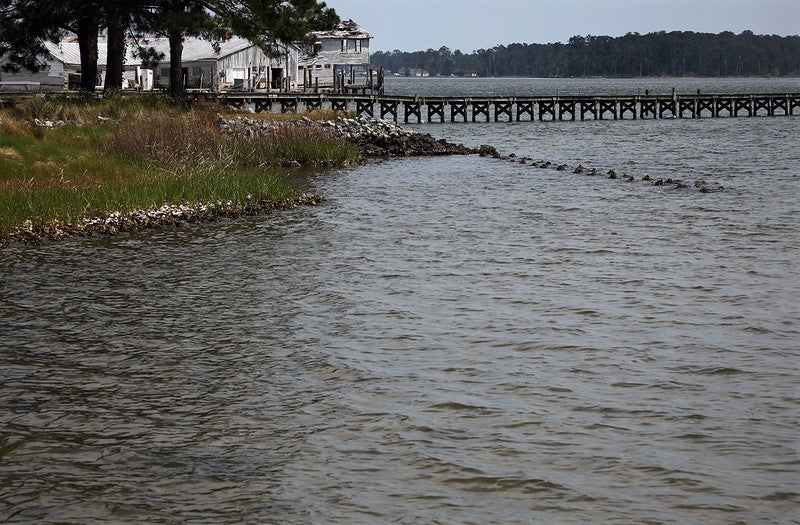North Carolina’s coastal wetlands and marshlands are a critical lifeforce for hunters and anglers
This op-ed was originally published in The Coastland Times.
Last week as Hurricane Lee tracked northward through the Atlantic, North Carolina’s coastal areas saw coastal flooding and beach erosion from storm surge and powerful 17-foot waves. At Cape Hatteras, the storm’s erosion uncovered a buried fence from the 1800s. Elsewhere, roads and neighborhoods experienced flooding. Those effects were felt despite Lee being more than 300 miles off our coast. We were fortunate the monster storm didn’t come any closer to our shores. These tropical systems, along with Nor’easters and other more frequent storm events take a toll on residents, business owners, and our state’s natural resources, including important fish and wildlife habitat.
As we mark National Hunting and Fishing Day, it’s worth taking stock of how increasingly intense and more frequent severe weather events are impacting our marshlands, wetlands, and sounds, which in turn directly – and adversely – affects our coastal communities and our hunting, fishing and outdoor recreational history and traditions.

As storms intensify, flooding becomes more frequent and severe, wetlands and other natural areas like forests absorb and filter storm waters. Without the cleansing processes of wetlands, stormwater can reduce oxygen levels, increase pollutants, and alter water levels, all of which negatively affect fish populations. When wetlands and natural areas are lost, flooding can change entire ecosystems, especially on the sound side.
Rain falling on pavement, rooftops, ditches, or roads causes water to swiftly rush into our rivers, sounds and marshes. These natural habitats serve as crucial breeding grounds and nurseries for a variety of native fish species. The loss of upstream wetlands will reduce the ability of the state’s rivers, sounds, and marshes to maintain the conditions necessary for the growth and survival of fish, ultimately reducing the overall quality of recreational fishing experiences.
Not only do coastal wetlands help protect fisheries and shellfish grounds, these wetlands, marshes and forests also serve as habitat for waterfowl, migratory songbirds, and other wildlife. It seems every hunter and angler now have stories of returning to a favorite spot to find it altered or destroyed. As stories like these multiply, the draw of wildlife and fisheries begins to decline, causing the local economies to suffer as tourists seeking wildlife and recreation diminish.
Just as the health and abundance of coastal wetlands affects wildlife and recreation, the rising seas are impacting coastal wetlands. The term “ghost forest” is becoming more commonly known as coastal forests die at higher rates due to saltwater intruding into forest soils. And marshes can, and are, being inundated with higher sea levels. Marshes naturally migrate inland, but when this migration is stymied by sea walls and berms, they leave the marshes to die out. Increased water levels can also erode streams and riverbanks, destroy vegetation, and alter the natural water flow patterns, making it more challenging for anglers to access fishing spots and reducing the variety of fishing opportunities available.
Even as wetland ecosystems face increasing challenges, they are themselves one of the best lines of defense for local communities during flood events. Communities sometimes rely on hardened structures, such as levees and dams, to protect homes, businesses, and roads from flood events. Those structures serve a purpose, but focusing solely on man-made defenses is akin to keeping our most valued player – nature, in the form of wetlands – off the court. Wetlands and other undeveloped lands help tackle rising waters, slowing overflowing water, filtering pollutants, and then temporarily retaining excess water until flooding recedes. Acting as “nature’s sponge,” wetlands save people and property, and often help prevent the need for more expensive and expansive recovery efforts. And wetlands help protect our fish and wildlife.

North Carolina enjoys a bounty of natural recreational areas, from Murphy to Manteo, as the saying goes. Increased flooding events from extreme weather are taking a toll in the areas where folks have enjoyed hunting, fishing, camping, and hiking for generations, giving rise to rich family traditions and bolstering local coastal-area economies intimately linked to the health and resilience of our state’s wetlands and other natural resources. Our landscapes are literally changing before our eyes, and the reality and depth of those changes affects us more with each passing year. Taking stock of how our lands and waters are evolving, and doing all we can to protect and preserve marshlands and wetlands both as natural flood mitigation systems and essential fish and wildlife habitat will help ensure that National Hunting and Fishing Day remains a day to celebrate our state’s continuing hunting, fishing and outdoor recreational traditions for years to come.












